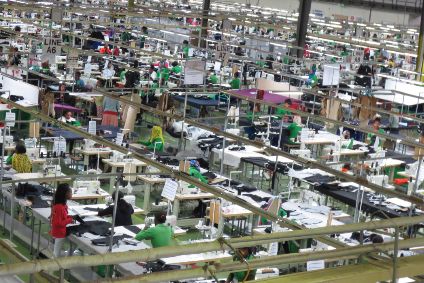
The International Labour Organization (ILO) has launched a programme to promote decent work and inclusive industrialisation in Ethiopia – with an initial focus on the garment and textile industries.
Coordinated in conjunction with the Ministry of Labour and Social Affairs, Confederation of Ethiopian Trade Unions, Ethiopian Employers’ Confederation and Ethiopian Industry Employers Confederation, it was inaugurated last week in the capital Addis Ababa.
The ILO is already engaged in a programme in Ethiopia involving its key components – Better Work, Vision Zero Fund, SCORE and LABADMIN – which began rolling out earlier this year.
The overarching development goal of its latest strategy is to see improved respect of workers’ rights leading to greater incomes and compensation, and enhanced safety, equality, voice, and representation. It also aims to lift industrial productivity and competitiveness to enable a global competitive textile and garment sector and encourage accountable and transparent government institutions.
The textile and garment industry is one of the priorities of the Ethiopian Government under the Growth and Transformation plan (GTPII) to lift Ethiopia to a middle-income country by 2025.
However, poor working conditions resulting in low productivity, high turnover and absenteeism, as well as weak regulatory institutions, coupled with the limited capacity of the workers’ and employers’ organisations, create a poorly functioning labour market and non-competitive businesses.

US Tariffs are shifting - will you react or anticipate?
Don’t let policy changes catch you off guard. Stay proactive with real-time data and expert analysis.
By GlobalDataAmong its objectives in Ethiopia, Better Work Ethiopia aims to establish a system for sustainable and inclusive compliance with national labour law – guided by international labour standards; move to a more productive and competitive garment and textile sector, better able to compete in global supply chains; and build sound industrial relations systems at the factory and national level. It also wants to establish a sustainable workplace injury prevention, protection and compensation system.
In recent years, garment manufacturers from Bangladesh, China, India and Sri Lanka have begun setting up factories in Ethiopia to produce garments for Western brands.
These investors are drawn to Ethiopia by a range of factors, including base wages as low as $26 per month – the lowest wage in the global garment sector – a large and young workforce, relatively low levels of corruption, a government with ambitious plans for the garment sector, and a potential, but as yet undelivered, supply of locally grown African cotton, all of which has induced more than 70 garment manufacturers to invest in Ethiopia.
However, a recent report by the NYU Stern Center for Business and Human Rights found that worker turnover and unrest is undermining Ethiopia sourcing, and that the country’s efforts to attract international investment in clothing manufacturing is failing the Ethiopians who work in factories making apparel for some of the world’s biggest brands.
The report’s authors subsequently shared their advice on just-style on How to support a virtuous sourcing circle in Ethiopia.
A new EU-funded project also launched last month to help some 21,000 cotton farmers, rural workers and garment workers in Ethiopia.



